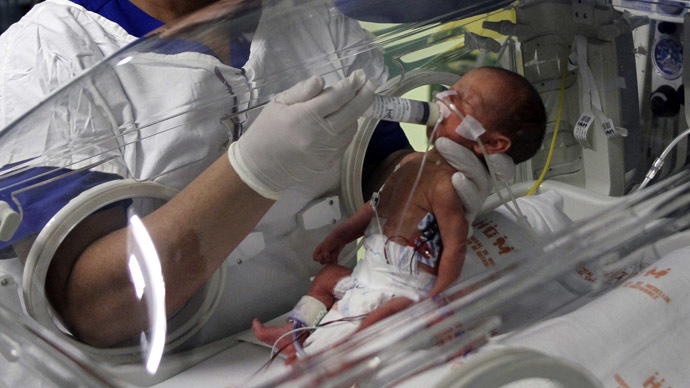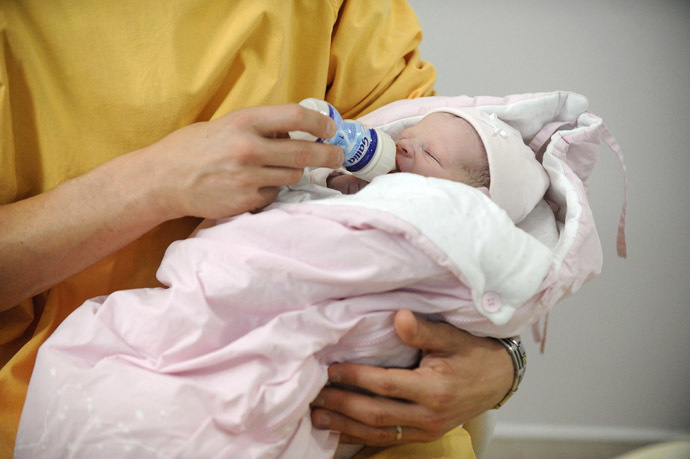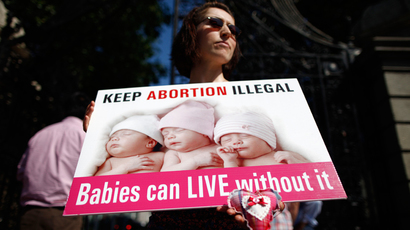MPs to consider explicit ban of gender-based abortions

The UK Parliament will discuss clarifications to the country’s abortion laws to specifically state that gender-based abortions are illegal. It comes amid reports that women in minority communities are being pressured to opt for boys instead of girls.
The author of the Abortion (Sex-Selection) Bill, MP Fiona Bruce, hopes it will “remove all doubt” surrounding current abortion laws, as she expects the move will attract “huge” support.
“This isn’t seeking to change the law. We are only seeking to clarify it,” she told The Sunday Telegraph, referring to the 1967 Abortion Act, which does not specifically outlaw pregnancy terminations based on gender, leaving some loopholes.
The British Medical Association (BMA) allows abortion under certain circumstances “in which termination of pregnancy on the grounds of fetal sex would be lawful” if the mother's physical or mental health may be compromised. Abortion is also lawful in the case of sex-specific inherited medical conditions – but only after two separate doctors agree with the diagnosis.
Last year, the Crown Prosecution Service decided not to press charges against two doctors who offered to conduct abortions on women that did not want their babies because of their gender.
“I want to send out a strong signal from Parliament and I also want to ensure that the executive, the Government, receives that message from parliamentarians that we want the Government to apply the law in this case, which requires them to inspect registered providers and ensure they are not carrying out abortions on this ground,” Bruce said.

The online campaign, #StopGendercide, seeks to clarify the 1967 Abortion Act even after a recent Government report found no statistically significant discrepancy in gender ratios in the UK. But another study by Oxford and Imperial College researchers found evidence of gender ratio aligning, which they attributable to gender abortion.
A study by Sylvie Dubuc, from Oxford University, found that the ratio of boys to girls for Indian-born mothers having their third child was 114:100 – far higher than the ratio for all women of 104:100. The 2007 study, which examined 23.4 million births over a 15-year period up to 2005, concluded that over a 1,500 baby girls went“missing”during that time, Dubuc told The Sunday Times.
In January, The Independent learned that up to 4,700 female children “disappeared” from the national census records in England and Wales, and that the natural balance of boys and girls in some immigrant communities had started to be affected.
The poll, carried out by ComRes, found that some 86 percent agree that “aborting babies solely because of their gender should explicitly be banned.”













